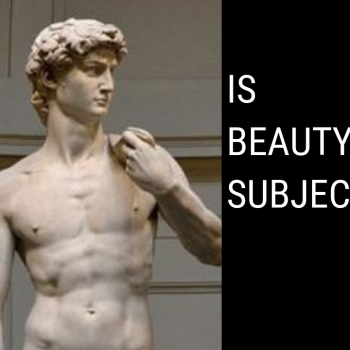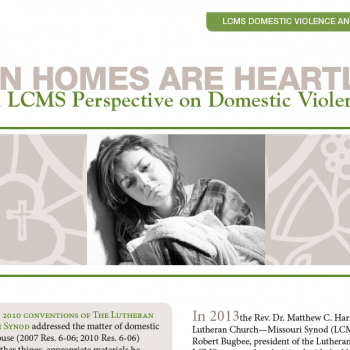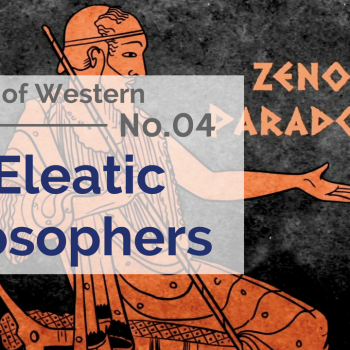
+++
Post by Nathan Rinne
The concluding paragraphs of my 2016 essay, “Is Authority Always Constructed and Contextual?A Classical Challenge to the Framework forInformation Literacy,” published in the Christian Librarian (see the actual article for the footnotes to this section):
Conclusion: A Proposed Way Forward
Clearly anyone endeavoring to explain issues related to authority faces a daunting task. An earlier version of the “Authority is Constructed and Contextual” frame in the [Association of College and Research Library’s] Framework [for Information Literacy in Higher Education] was obviously realized to be too simple: “Experts understand that authority is the degree of trust that is bestowed and as such, authority is both contextual and constructed” (Wilkinson, 2014). Even though issues of trust cannot be cleanly separated from notions of authority, one is readily able to understand why such a statement did not make it into the final document (or, perhaps, “Framework 1.0”). If anything is clear about issues pertaining to authority it is that, as the foregoing discussion shows, they are fraught with difficulty and require an extraordinarily high level of nuanced thinking.
“But perhaps,” one might say, “you have been treating this question largely in an ‘originalist’ fashion, when we should be highlighting the fact that this is a ‘living document’ – that is, one that is evolving.” In other words, your argument assumes a certain “stability” of words, meanings, or things in general that is wholly unwarranted, at the very least, for such an intentionally flexible document. “And besides,” one might add, “persons are not going to agree with all issues pertaining to moral authority, tied up as they are with the various views of the universe, or ‘cosmos,’ as a whole – and views about where or how purpose and meaning are ultimately to be found.”
So, in light of this, does it not makes sense to see things like the Framework as “kairotic texts” (Drabinski, 2014) and nothing more – meaning that we should “approach standards as functional” (Drabinski, 2014)? Even though the Framework makes assertions, do we really need to be overly concerned “over what is true and right,” embracing what amounts to undesirable reification? (Who, after all, wants a positivistic search for “acontextually authoritative and valid sources” contrary to a “more situated and participatory vision” [Foasberg, 2015]?) Even as we, simultaneously, continue to insist persons should conform themselves to the moral norms we are currently in the habit of asserting for ourselves and the communities we serve? Insofar as the Framework presents itself as a useful tool in attaining these temporary goals en route to higher goals, why not use it in just this way?
There is however, something inherently problematic here. Does true progress mean that we are always changing the world in accordance with our vision, or that we are always changing our vision? If we want to say “both” to this, we should note what the ever insightful G.K. Chesterton (1909) wrote, namely:
[progress] should mean that we are slow and sure in bringing justice and mercy among men: it does not mean that we are very swift in doubting the desirability of justice and mercy… We are not altering the real to suit the ideal. We are altering the ideal: it is much easier” (p. 195).
When it comes to being clear about important matters such as these, persons like Chesterton would seem to be decidedly against building the airplane while we are in the air, and point us towards the need for at least something solid.
So, in light of the foregoing discussion in this and previous sections, are there any anchor points that could be agreed on?
I think there are. First, take the question of whether authority is incontestably contextual in the sense suggested by the statement “Authority is Constructed and Contextual.” Consider, for instance, Cicero’s observation that “Nature produces a special love of offspring,” and Epictetus’ assertion that “Natural affection is a thing right according to Nature” (Lewis, 1996, p. 99). Is it not, in fact, the default “societal position” of parents to be responsible for, and to be quite invested in, their offspring, to become expert guides in reference to them in their particularities? In like fashion, consider the argument of 18th century Scottish philosopher Thomas Reid, pointing out the curious fact underlying the evidently universal feeling of thankfulness: “Gratitude for favors only makes sense because a favor goes beyond what is just” (Holmes, 117). As for justice, one notes that Spinoza, following Plato, pointed out that “the beauty of proportionality” can cause one to “abhor a situation that would bring one into disproportion with everyone else” (Goldstein, 2014, pp. 204, 392, 39), and that this, in turn, harmonizes with the Golden Rule. This is just a sampling of things that it seems various groups of human beings do not so much design or construct (unconsciously or consciously), but rather, as if by intrinsic design, something a “human community of practice” recognizes and receives willingly (at least in theory, i.e., “sounds like a good idea”).
And this can be seen to go hand in hand with the kinds of things that the motorcycle mechanic philosopher Matthew Crawford says in his most recent book, The World Outside Your Head. He notes, for example, “the world is known to us because we live and act in it, and accumulate experience… we think through the body” (Crawford, 2015, pp. 50-51). In other words, at least certain things “outside our head” subsist “authoritatively,” creating what the literary scholar Hans Gumbrecht has called “presence effects” (2004, p. 108). These, in effect, exercise their own intrinsic meaning as they help structure our attention, thereby anticipating our minds’ interpretive activities. Current trends in Western education, on the other hand, would even seem to suggest that facts are true for individuals only if they can be proved (McBrayer, 2015).
Therefore, unless cultural traditions can be identified that exhibit both long-term endurance and a persistent tendency to contradict all of these evidently common experiences, why assert that “Authority is Constructed and Contextual,” giving the likely impression that it is always and only constructed but never really “given” – “a given”? Interestingly, it would seem to depend on the wider context of thestatement, “authority is contextual” to determine whether or not authority, in particular cases, can actually be said to be constructed in the sense meant by the Framework! In other words, authority, in an unanticipated “meta”-move, turns out to even more contextual than the statement suggests. Why? Because it gives the clear impression of undermining the intended meaning and goal of the phrase “Authority is Constructed and Contextual” itself, a phrase which is meant to highlight and emphasize the importance not of experiences common to all human beings, but rather the diversity and variations of human experience.
Academic currents espousing the wisdom of social constructivism, and its sister, pragmatism, might seem to suggest the statement “Authority is Constructed and Contextual” is what we want. But given things like those that have been pointed out above, is not a degree of skepticism called for here? Does not this statement, with its seemingly universal claim, introduce all manner of demonstrable confusion as well as call into question the importance of the matter of truth itself – and with this, rational discourse? If the student at a religious seminary, for instance, were to insist that authority is constructed and contextual, he might well find himself failing to graduate. Acknowledging that many would no doubt contest this seminary’s actions, we nevertheless cannot simply respond by saying “This just goes to show that authority is constructed differently in different contexts.” True?
Former Library of Congress librarian Thomas Mann, author of the Oxford Guide to Library Research (2015), after reading a rough draft of my paper, said this to me:
The problem with the assertion that “Authority is Constructed and Contextual” is that it is self-invalidating. The statement itself claims to be a universal truth about authority, maintaining that authority is always dependent on social constructions and contexts. If that is true, however, then the very assertion of that claim is itself nothing more than yet another statement grounded on a particular social construction that has no more authority to it – no more claim to true understanding – than any other statement claiming “authority” that has the power of some other social group behind it. This unarticulated and concealed proposition behind the statement leaves the door wide open to the very proliferation of hostile “us vs. them” groups that all are capable of amassing considerable power – with power being the ultimate determinative of which views shall prevail. Moreover, since the statement that “Authority is Constructed and Contextual” cannot possibly be a universal truth without contradicting itself, then the door is wide open to consider other statements regarding the nature of authority (and truth); and some of those other statements may indeed have much better claims to universality (T. Mann, personal communication, May 24, 2016).
When put so bluntly, it is difficult to resist Mann’s analysis. When the influential Richard Rorty defined truth as “what our peers will let us get away with saying,” how does this not, in effect, make truth liable to being nothing more than a power play for one’s advantage? From which it follows that it is really true (!) that it is ultimately only things that overpower other things that can be said to exist – to be. This certainly puts a new spin on what Aristotle said about truth, namely that “to say that which is, is and that which is not is not, is true”! With this assumed, the best among us can only be those who take and lead leaps of faith into oceans, hoping that the evolving beliefs we think are “good” – and not just our genes – will be spread and passed on. Here, any classical notions of knowledge as “justified true belief ” are banished, as whatever can function to win, if only temporarily, is all that remains for us to hope in. On the other hand, what if what we ultimately need is just such knowledge, and real wisdom, perhaps even involving a truth that even goes beyond “accuracy” – implying perhaps even a goodness that goes beyond our own subjective impressions?
Even if one thinks that such questions are not ideal for an increasingly secular age, should we not at least honestly wrestle with the issues presented above – and perhaps be content to assert that “Issues of Authority are Nuanced and Contextual”? Here is something I think almost all of us can agree is true – at least now – full stop. Perhaps being concerned about what is really true is more important than where the academic trends of constructivism and pragmatism seem to be taking us. At the very least, re-framing this statement from the Framework would allow for those who want to ask questions like this – and who in fact believe the answer is affirmative – to continue in their practices without finding them unintentionally undermined.
FIN












